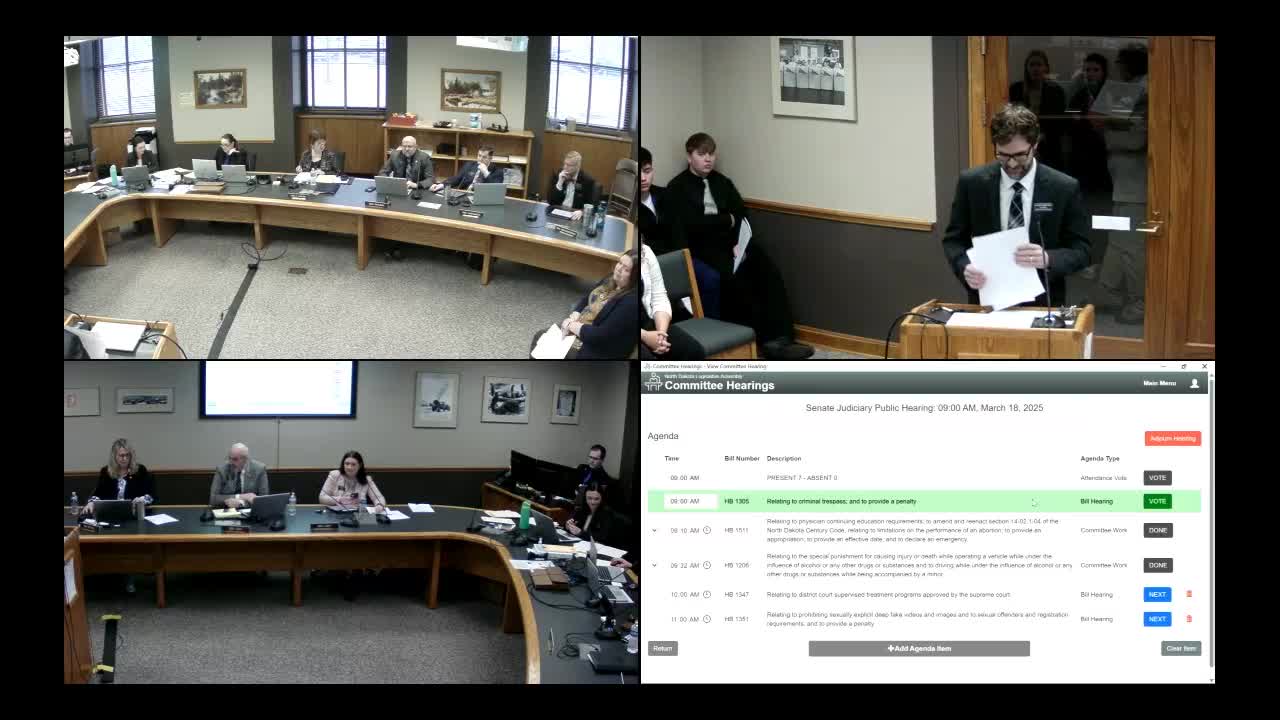Article not found
This article is no longer available. But don't worry—we've gathered other articles that discuss the same topic.
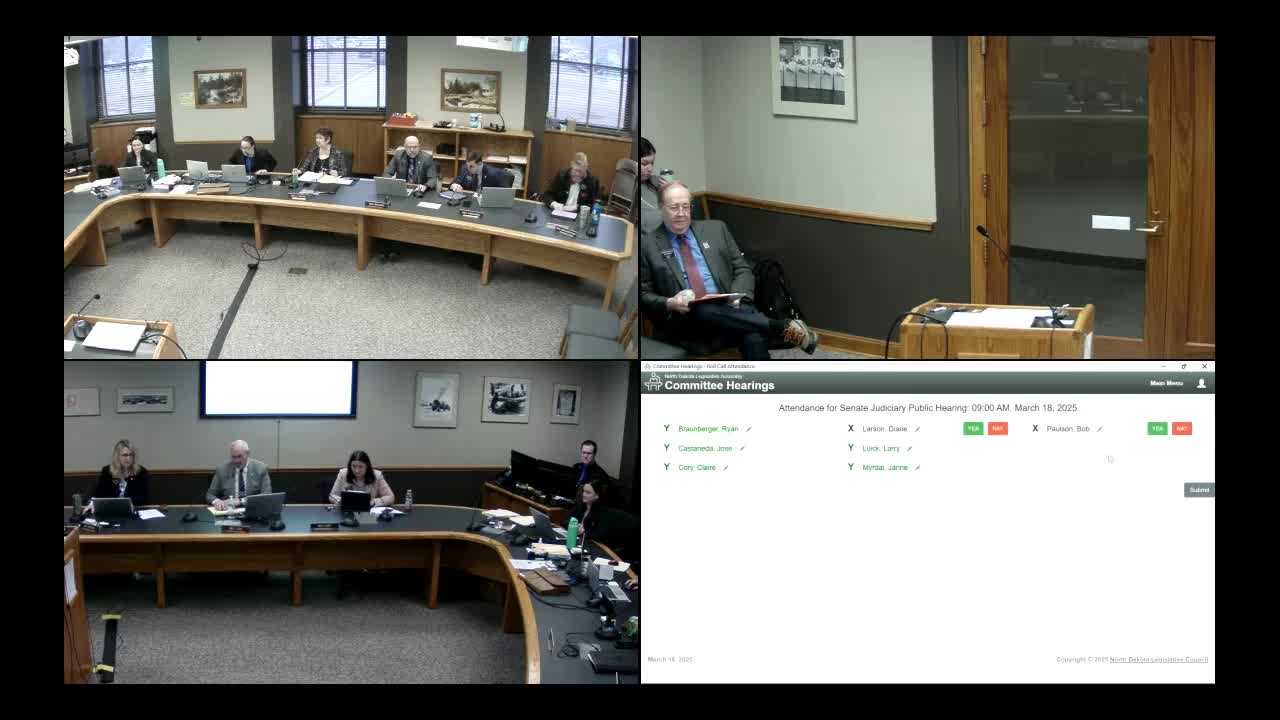
Judiciary committee hears bill to criminalize squatting; motion for immediate passage fails
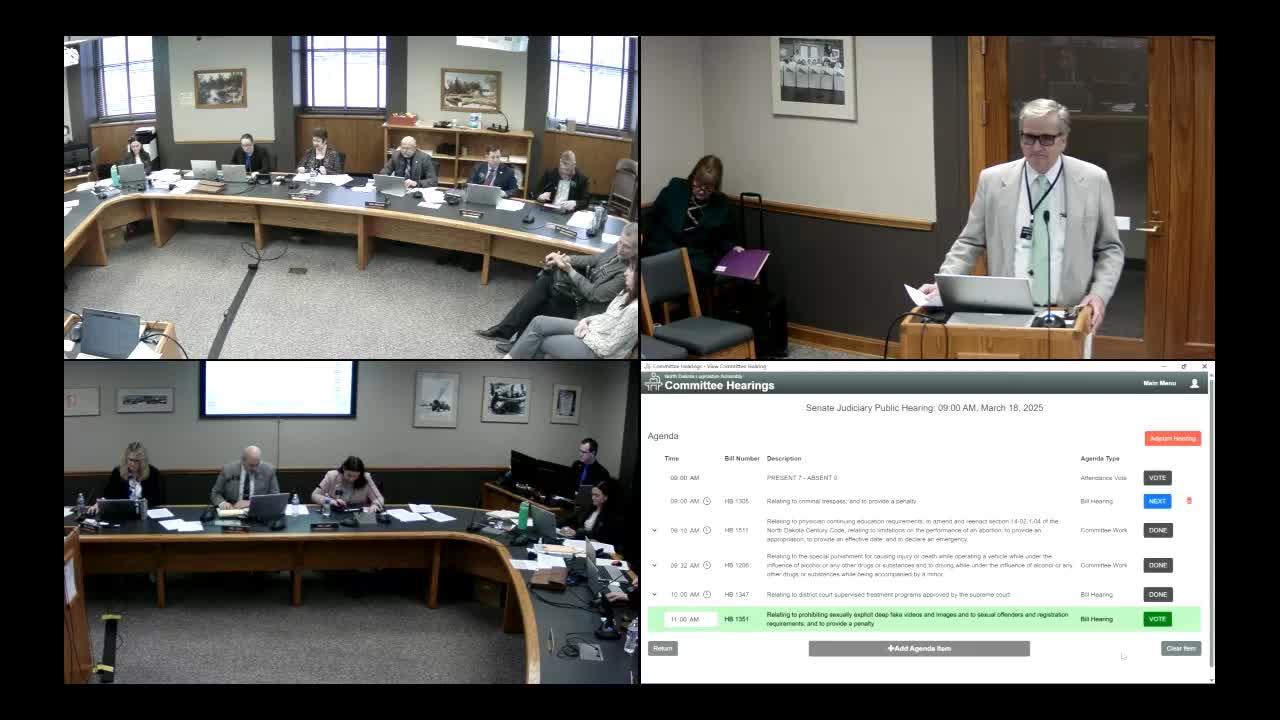
Committee considers bill to criminalize explicit deepfake images; prosecutors urge using revenge‑porn statute and limit registration requirement
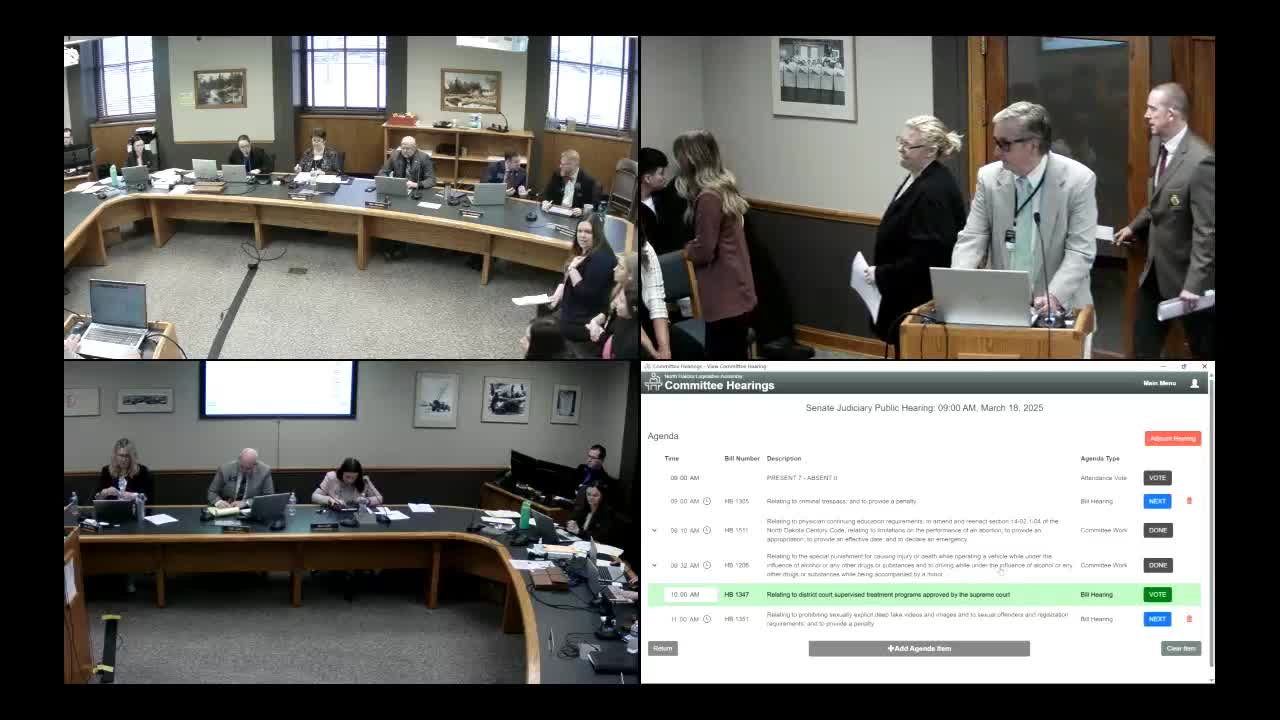
Bill to clarify roles for district court supervised treatment programs wins committee approval
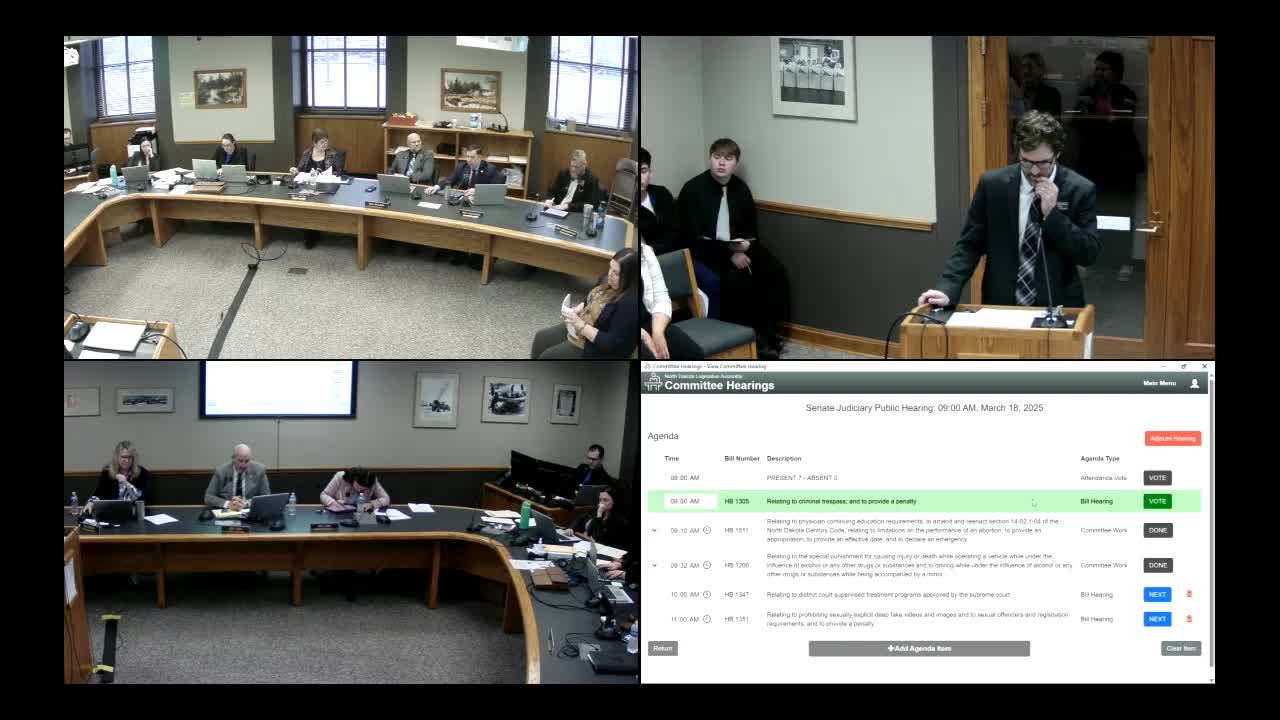
Committee approves amendment and gives due pass to House Bill 12‑06 as amended
